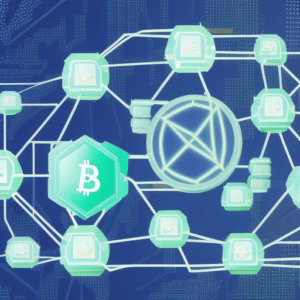Web3 has recently emerged as a potential solution to some of the biggest problems facing the Internet, but will it succeed or fail?
Some experts say Web3 can live up to the hype. But others predict it will suffer the same fate as previous iterations of web technology.
In this article, we will explore the issues that will determine whether Web3 will succeed or fail.
The Web3 Research Institute is reader-supported. When you buy through links on this site, we may earn a commission at no cost to you.
The 5 Reasons Why Web3 Could Succeed
We think Web3 could succeed for five reasons:
1. Web3 is decentralized.
With Web3, there is no centralized authority in control. This allows for a more democratic Internet, where you can have a greater say in how the Internet is run. It also creates a more open Internet that can protect your rights and freedoms.
2. Web3 promotes security and privacy.
Web3 technologies use encryption and other security measures to make it difficult for hackers to steal data. The technologies also let people stay anonymous. This limits the ability of big tech companies and governments from monitoring your online activities.
3. Web3 has the potential to improve the user experience.
A Web3-enabled Internet could make it more difficult for ads and trackers to follow people. In addition, many developers are designing their decentralized applications to be more user-friendly than their traditional counterparts.
4. Web3 offers new opportunities for innovation.
As Web3 grows, we are seeing more innovative applications emerge. From tools for managing your digital identity to decentralized exchanges, these applications are changing the way we interact with the Internet. And with continued development, we can expect more innovation in the coming years.
5. Web3 can reduce costs.
An exciting aspect of Web3 is its potential to reduce costs. Specifically, it can reduce data storage costs. This is because decentralization eliminates the need for centralized servers.
Web3 also helps businesses connect directly with customers and suppliers. This can increase operational efficiency and reduce supply chain costs.
The 5 Reasons Why Web3 Could Fail
Although we think Web3 will succeed, there are five reasons why it could fail:
1. Users are responsible for protecting data.
With Web3, people are fully responsible for keeping their data safe. This means they must remember how to access their data and how to securely share information. By teaching people what precautions to take, however, Web3 could live up to its potential.
2. Web3 technologies are not very intuitive.
For Web3 to reach its full potential, it must have a better user experience. Web3 applications are still in their infancy, and many have complicated interfaces or slow performance. If these applications cannot provide a better experience, they will struggle to attract users.
3. Controlling a decentralized web is not easy.
Decentralized networks offer several advantages over traditional server-based networks. However, they can be difficult to control. Some possibilities include vesting control in a central authority or using decentralized autonomous organizations. There are pros and cons to both approaches, and there is no easy answer. Ultimately, we must strike a balance between centralization and decentralization.
4. Connecting different blockchains is very difficult.
Web3 is made up of many different blockchains. For Web3 to succeed, these blockchains must be able to communicate and work together effectively. That is not easy, but some promising projects like Polkadot are working on it.
5. Not all blockchains are scalable.
For Web3 to succeed, networks must be able to handle increased traffic and keep up with demand. They must also be able to scale quickly, as the demand for Web3 services is likely to increase rapidly. There are a few ways that Web3 can meet these challenges, such as sharding, but scalability remains a problem today.
Final Thoughts
So what is the verdict? Will Web3 succeed or fail? It is too soon to tell. However, we think Web3 has the potential to change the Internet for the better.
Related Articles

The 55 Best Web3 Certifications in 2023
Read our list to find the best Web3 certification that can help increase your chances of advancing in this exciting field!

The 35 Best Web3 Grants in 2023
To help Web3 professionals keep up with the latest trends and technologies, we’ve compiled a list of 35 grants that are currently available.

The 104 Best Crypto White Papers
If you’re looking for the best crypto white papers, look no further! In this roundup, you’ll find our 104 top picks of the year.
